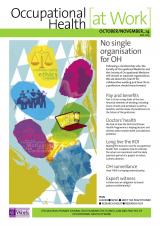October/November 2014 (vol. 11/3)
ContentsFeaturesNewsLegal
NewsResearch DigestResearch PlusCPD
Research Plus
Hand washing for outdoor work
The use of ordinary soap and warm running water is the most effective method of reducing hand-borne microbial contamination in outdoor work, such as agriculture, waste recycling and construction, according to this critical review (eight papers met inclusion criteria). Soap and cold running water is also effective in removing contamination, though is thought likely to deter some workers in cold conditions. Impregnated hand wipes can reduce hand contamination – and are useful where hand-washing facilities are absent – but their effectiveness depends on the type and concentration of active ingredient and the way they are used. Alcohol gels and rubs are effective under certain conditions, but limitations to their use in outdoor work include that: visible organic soiling can neutralise their effect; they do not physically remove hand soiling; and at least 3ml of product must be applied to each hand to be effective. There is some evidence that water alone provides better physical removal of contaminants than hand wipes or alcohol hand rubs. (Note: the findings only relate to outdoor work and not to the use of alcohol gels where the hands are visibly clean, for example in healthcare.)
HSE Research Report 1007. Bootle: HSE, 2014.
Occupational Health at Work October/November 2014 (vol. 11/3) pp44



